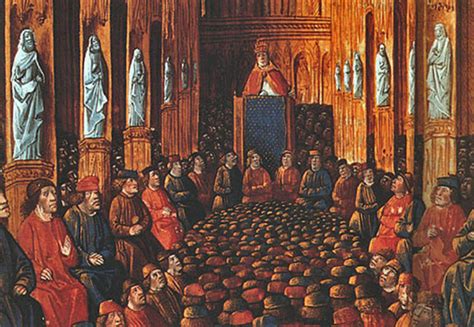St. Gregory VII and the Crusades
INCLUDES THE VIDEO, "I am an Eagle!"
The recent feast day (May 25) of St. Gregory VII – Hildebrand – shows again that while it was Pope Urban II who “officially” called for what would later become known as a “crusade,” the idea of it had stretched back in Christians’ consciousness for centuries. Just prior to Urban II’s declaration at Clermont, his predecessor, St. Gregory, preached liberation of the Holy Land from Muslim control and had it not been for his continuous battle with the German Emperor Henry IV, St. Gregory may have carried his dream to a successful conclusion.*

Urban II calls for Crusade
The idea of an armed expedition to liberate the Holy Sepulchre and other Christian sites had not only been on the mind of the great pope, but it had been an aspiration of many Christians since the Muslim conquest in the seventh century. Hildebrand’s saintly life doubtlessly inspired not only future popes, but Christian princes, knights, and the general populace. Dom Prosper Gueranger in his magisterial Liturgical Year wrote:
And yet, Gregory was that Father of theIn a letter to the Faithful, St. Gregory pleaded with his flock to take up arms and relieve their fellow Christians from the “outrages” and “cruelties” that they had been subjected to:
Christian world who, from the very
commencement of his pontificate, was full
of the thought of driving the Mahometans
out of Europe, and of delivering the Christians
from the yoke of the Saracens. It was the
inspiration taken up by his successors, and
carried out under the name of the Crusades.**
If we love God, if we call ourselves Christians,The Vicar of Christ told the then Emperor Henry IV, that he himself would lead an assault which was assembling in response to his plea:
we must grieve over such evils; but we should
do more than grieve over them. Our Savior’s
example and the duty of fraternal charity impose
upon us the obligation of giving our lives for the
deliverance of our fellow-Christians. Know then,
that trusting in the mercy of God and in the
might of arm, we are doing and preparing
everything in our power in order to give
immediate help to the Christian Empire.***
My admonition to the Christians of Italy and theThe aged pontiff not only had liberation of the Holy Land in his mind, but sought the reunification of Eastern and Western Churches:
countries beyond the Alps has been favorably
received. At this moment, fifty thousand men
are preparing; and, if they can have me to head
the expedition as leader and Pontiff, they are
willing to march to battle against the enemies
of God, and, with the divine assistance, to go
even to our Lord’s Sepulchre.****
There is one thing which urges me to do this:For the study of Christendom and the Crusades in particular, St. Gregory’s call and attempt at the liberation of the Holy Land is important. That his pontificate was severely hindered by the nefarious activities of Henry IV evidenced the growing power of secular authority at the expense of the Church and the nobility. It must be remembered that when Urban II called for a crusade, a decade after St. Gregory’s death, the response came from the great princes and dukes not the monarchs.
it is the state of the Church of Constantinople,
which is separated from us in what regards
the dogma of the Holy Ghost, and which
must be brought back to union with the
Apostolic See. Almost the whole of
Armenia has abandoned the Catholic faith.
In a word, the greater portion of the Orientals
require to know what is the faith of Peter,
on the various questions which are being
mooted among them. . . .
We, then also feel urged, if Christ opens to us
a way, to undertake this expedition for the
interests of the faith, and in order to give aid
to the Christians.*****

By far, the First Crusade was the most successful, while those that followed which were kingly led, accomplished little. While amassing power at home, the monarchs failed in their Christian duty to the Church, popes, Christendom and, ultimately, to their Maker.
*Dom Prosper Gueranger, The Liturgical Year, Vol. VIII, Book 2, 560.
